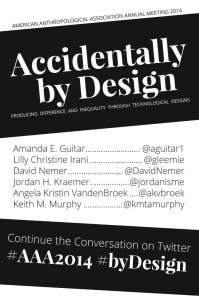Are smartphones and social media destroying our capacity for human connection? New technologies can upend existing social orders, but are equally a product of the conditions—here, late capitalism—in which they are produced. Two divergent approaches offer insight into how cultural and economic contexts shape media practice.
Sherry Turkle. 2015. Reclaiming Conversation: The Power of Talk in a Digital Age. New York: Penguin Press. 436 pages.
Daniel Miller. 2016. Social Media in an English Village. London: University College London Press. 234 pages.
Daniel Miller, Elisabetta Costa, Nell Haynes, Tom McDonald, Razvan Nicolescu, Jolynna Sinanan, Juliano Spyer, Shriram Venkatraman, and Xinyuan Wang. 2016. How the World Changed Social Media. London: University College London Press. 260 pages.
Excerpt:
[Turkle’s] diagnoses provide a language for addressing ways smartphones and social media distract many people, offering a “friction-free” engagement that promises freedom from boredom but not from loneliness. And if conversation is what’s lost, then conversation can cure, in the tradition of the open-ended conversation of psychoanalytic therapy, the “talking cure.” Turkle offers two main approaches to reinstating talk, one concerned with design and the other with practice. She advocates, first, designing technologies that do not exploit human psychological vulnerabilities, such as notifications that demand continual attention. I agree that design could offer a means to redress features that are disruptive, but these features — like the interfaces that enable the “machine zone” — are essential to the business model of most mobile platforms. Redesigning them would entail tech companies relinquishing lucrative revenue streams. On the contrary, a broader critique is required of the social and economic context in which media technologies are produced, such as in Silicon Valley and other elite tech hubs.
This article in Anthropology Now is available for free download to the first 50 users here:


